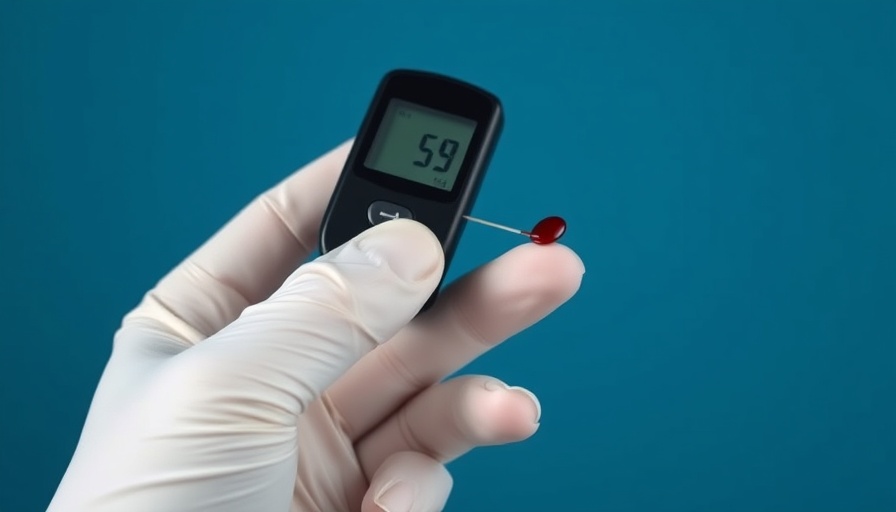
Understanding the Link Between Income and Diabetes Management
A recent study has brought to light a concerning relationship between low income and the risk of severe hypoglycemia in individuals with Type 2 diabetes. This finding suggests that socioeconomic status plays a critical role in managing chronic conditions, like diabetes, which is becoming increasingly prevalent worldwide.
Why Does Income Matter?
The study indicates that individuals from low-income backgrounds face greater challenges when managing their diabetes, leading to higher instances of severe hypoglycemia—a sudden drop in blood sugar levels that can be life-threatening. Limited access to healthcare resources, nutritious food, and diabetes education may significantly impact their health outcomes. Furthermore, the lack of financial resources can restrict patients' ability to afford essential medications, creating a dangerous cycle of worsening health.
The Impact of Nutrition on Diabetes
Nutrition is a crucial facet of diabetes management. Individuals with limited financial means might resort to cheaper, less nutritious food options, which may contribute to erratic blood sugar levels. Healthy foods that are beneficial for maintaining stable glucose levels can often be more expensive, further complicating the dietary choices of low-income individuals.
A Broader Understanding of Hypoglycemia Risks
Hypoglycemia poses serious health risks, such as confusion, seizures, and loss of consciousness. Understanding how socioeconomic status correlates with such health risks is vital for creating effective interventions. For healthcare providers, recognizing these vulnerabilities is essential for developing personalized care plans that consider financial barriers in addition to clinical needs.
Unique Benefits of Addressing Low-Income Health Disparities
Addressing health disparities associated with income can lead to substantial benefits not only for the individuals affected but also for the healthcare system at large. By implementing targeted programs that improve access to diabetes care and education, we can help mitigate the risks of complications like hypoglycemia, ultimately reducing the burden on healthcare resources.
Future Directions in Diabetes Care
As the prevalence of Type 2 diabetes continues to rise, stakeholders in health care need to prioritize education and access to affordable care. This can be achieved through policies that emphasize the integration of financial support systems into diabetes management. With innovative healthcare models, such as telemedicine and community health initiatives, a more inclusive approach can be realized, ensuring that all individuals, regardless of their income level, receive the care they need.
What Can Be Done?
For individuals and families facing these challenges, awareness about the resources available for diabetes management is critical. Local health organizations often provide free or low-cost services, support groups, and educational materials to help patients manage their diabetes effectively. It's vital to reach out and take advantage of these resources to maintain better health outcomes.
As we continue to understand the intersecting issues of income and health management, staying informed and engaged can empower those affected to advocate for their health more effectively. Education and access must be at the forefront of our priorities to break this cycle and create healthier communities.
 Add Row
Add Row  Add
Add 




Write A Comment